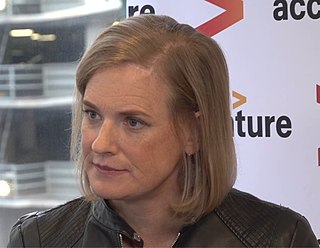A Quote by Vivienne Ming
Related Quotes
The 9-9-9 plan would resuscitate this economy because it replaces the outdated tax code that allows politicians to pick winners and losers, and to provide favors in the form of tax breaks, special exemptions and loopholes. It simplifies the code dramatically: 9% business flat tax, 9% personal flat tax, 9% sales tax.
I think what grows the economy is when you get that tax credit that we put in place for your kids going to college. I think that grows the economy. I think what grows the economy is when we make sure small businesses are getting a tax credit for hiring veterans who fought for our country. That grows our economy.
Donald Trump is a businessman, not a career politician. He actually built a business. Those tax returns that were - that came out publicly this week show that he faced some pretty tough times 20 years ago. But like virtually every other business, including the New York Times not too long ago, he used what's called net operating loss. We have a tax code that actually is designed to encourage entrepreneurship in this country.
The reality is the most important thing that can be done are these permanent changes like to the tax code, reduction of government spending. These are the things that pop up in economy and move it in the right direction, start to make it an economy that is moving because of the money in the private economy. When you think about it, when the Fed is lowering an interest rate, what it's doing is it's creating more liquidity. It's putting more money into the economy. The same thing happens when you reduce the tax except if happens from physical policy.
Well, certainly the Democrats have been arguing to raise the capital gains tax on all Americans. Obama says he wants to do that. That would slow down economic growth. It's not necessarily helpful to the economy. Every time we've cut the capital gains tax, the economy has grown. Whenever we raise the capital gains tax, it's been damaged.
In 1994, Estonia became the first European country to adopt a flat tax, and its 26 percent flat tax dramatically energized what had been a faltering economy. Before adopting the flat tax, the Estonian economy was literally shrinking. In the eight years after 1994, Estonia experienced real economic growth - averaging 5.2 percent per year.
Our practical choice is not between a tax-cut deficit and a budgetary surplus. It is between two kinds of deficits: a chronic deficit of inertia, as the unwanted result of inadequate revenues and a restricted economy; or a temporary deficit of transition, resulting from a tax cut designed to boost the economy, increase tax revenues, and achieve -- and I believe this can be done -- a budget surplus. The first type of deficit is a sign of waste and weakness; the second reflects an investment in the future.






























